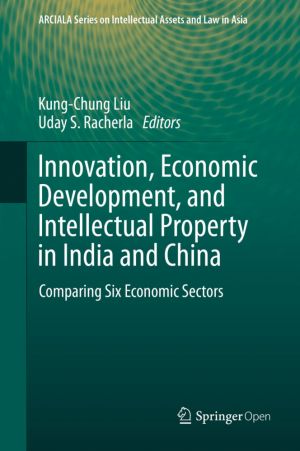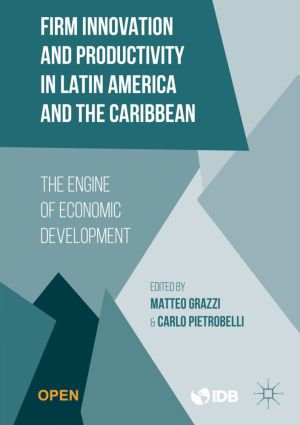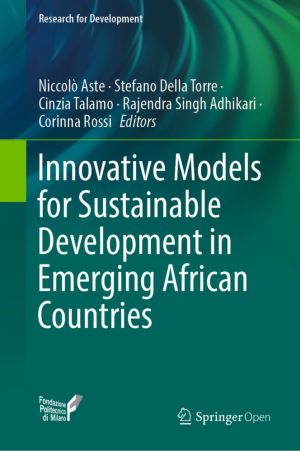Evaluating Environment in International Development
by Juha I. Uitto
DescriptionTable of ContentsDetailsHashtagsReport an issue 






Book Description
This book provides novel and in-depth perspectives on evaluating environment and sustainability issues in developing countries. Evaluating Environment in International Development focuses on the approaches and experiences of leading international organizations, not-for-profits, and multilateral and bilateral aid agencies to illustrate how systematic evaluation is an essential tool for providing evidence for decision-makers. Moving beyond projects and programmes, it explores normative work on the environment as well as environmental consequences of economic and social development efforts. This new edition reflects on the 2030 Agenda for Sustainable Development and Sustainable Development Goals and considers how they have influenced efforts in a wide range of countries and what the implications are for evaluation. It also explores ways in which Big Data and geospatial approaches might be utilised. Significantly updated throughout to reflect recent developments in climate change research, and on the implications of the 2020 pandemic, this volume will be of great interest to students and scholars of environment studies, development studies, international relations, sustainable development and evaluation, as well as practitioners in international organizations and development and environmental NGOs.This open book is licensed under a Creative Commons License (CC BY-NC-ND). You can download Evaluating Environment in International Development ebook for free in PDF format (11.2 MB).
Table of Contents
Chapter 1
Evaluating environment in international development: an introduction
Chapter 2
A global public goods perspective on environment and poverty
Chapter 3
Evaluation at the nexus: evaluating sustainable development in the 2020s
Chapter 4
Poverty, climate change and disaster risk reduction: too complex to evaluate?
Chapter 5
Using big data and geospatial approaches in evaluating environmental interventions
Chapter 6
Multiple actors and confounding factors: evaluating impact in complex social-ecological systems
Chapter 7
Assessing progress towards impacts in environmental programmes using the field review of outcomes to impacts methodology
Chapter 8
Meta-analysis of climate mitigation evaluations
Chapter 9
A programme theory approach to evaluating normative environmental interventions
Chapter 10
From evaluation of joint programmes to joint evaluation of SDGs-ready interventions: lessons from the joint GEF-UNDP evaluation of the Small Grants Programme
Chapter 11
Evaluating the poverty - environment nexus in Africa
Chapter 12
Small grants, big impacts: aggregation challenges
Chapter 13
Green economy performance of environmental initiatives in Latin America and the Caribbean
Chapter 14
Evaluating international support for transboundary aquifer management programmes
Chapter 15
Disaster risk management in the SDG era
Chapter 16
The Consultative Group on International Agricultural Research approach to evaluation of climate change, environment, and natural resource management
Book Details
Title
Evaluating Environment in International Development
Subject
Social Sciences
Publisher
Taylor & Francis
Published
2021
Pages
346
Edition
2
Language
English
ISBN13
9780367557119
ISBN10
0367557118
ISBN13 Digital
9781003094821
ISBN10 Digital
1003094821
PDF Size
11.2 MB
License

Related Books

This book analyses intellectual property and innovation governance in the development of six key industries in India and China. These industries are reflective of the innovation and economic development of the two economies, or of vital importance to them: the IT Industry, the film industry, the pharmaceutical industry, plant varieties and food sec...

This book analyses the development problems of sub-Sahara Africa (SSA) from the eyes of a Korean diplomat with knowledge of the economic growth Korea has experienced in recent decades. The author argues that Africa's development challenges are not due to a lack of resources but a lack of management, presenting an alternative to the traditional...

This volume uses the study of firm dynamics to investigate the factors preventing faster productivity growth in Latin America and the Caribbean, pushing past the limits of traditional macroeconomic analyses. Each chapter is dedicated to an examination of a different factor affecting firm productivity - innovation, ICT usage, on-the-job-training, fi...

The importance of the pharmaceutical industry in Sub-Saharan Africa, its claim to policy priority, is rooted in the vast unmet health needs of the sub-continent. Making Medicines in Africa is a collective endeavour, by a group of contributors with a strong African and more broadly Southern presence, to find ways to link technological development, i...

This free book explores key issues and presents recent case studies in areas of importance for the transition to a circular model of development in emerging African countries that will minimize resource consumption and waste production. The topics covered include the development of sustainable housing models, energy and environmental issues in buil...

This book examines the interrelationship of national policy, teacher effectiveness, and student outcomes with a specific emphasis on educational equity. Using data from the IEA's Trends in International Mathematics and Science Study (TIMSS) conducted between 1995 and 2015, it investigates grade four and grade eight data to assess trends in key...

